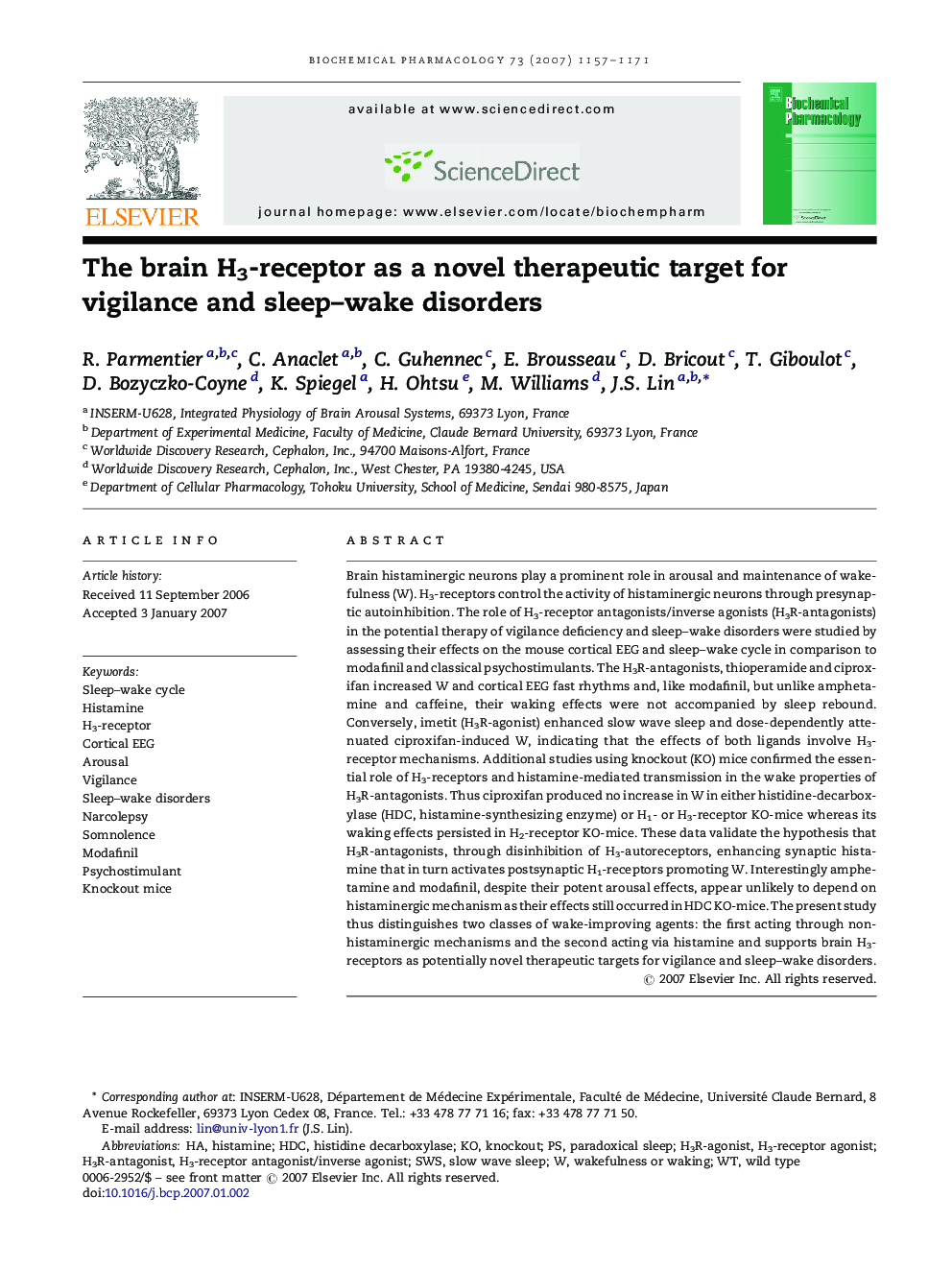| Article ID | Journal | Published Year | Pages | File Type |
|---|---|---|---|---|
| 2514720 | Biochemical Pharmacology | 2007 | 15 Pages |
Brain histaminergic neurons play a prominent role in arousal and maintenance of wakefulness (W). H3-receptors control the activity of histaminergic neurons through presynaptic autoinhibition. The role of H3-receptor antagonists/inverse agonists (H3R-antagonists) in the potential therapy of vigilance deficiency and sleep–wake disorders were studied by assessing their effects on the mouse cortical EEG and sleep–wake cycle in comparison to modafinil and classical psychostimulants. The H3R-antagonists, thioperamide and ciproxifan increased W and cortical EEG fast rhythms and, like modafinil, but unlike amphetamine and caffeine, their waking effects were not accompanied by sleep rebound. Conversely, imetit (H3R-agonist) enhanced slow wave sleep and dose-dependently attenuated ciproxifan-induced W, indicating that the effects of both ligands involve H3-receptor mechanisms. Additional studies using knockout (KO) mice confirmed the essential role of H3-receptors and histamine-mediated transmission in the wake properties of H3R-antagonists. Thus ciproxifan produced no increase in W in either histidine-decarboxylase (HDC, histamine-synthesizing enzyme) or H1- or H3-receptor KO-mice whereas its waking effects persisted in H2-receptor KO-mice. These data validate the hypothesis that H3R-antagonists, through disinhibition of H3-autoreceptors, enhancing synaptic histamine that in turn activates postsynaptic H1-receptors promoting W. Interestingly amphetamine and modafinil, despite their potent arousal effects, appear unlikely to depend on histaminergic mechanism as their effects still occurred in HDC KO-mice. The present study thus distinguishes two classes of wake-improving agents: the first acting through non-histaminergic mechanisms and the second acting via histamine and supports brain H3-receptors as potentially novel therapeutic targets for vigilance and sleep–wake disorders.
